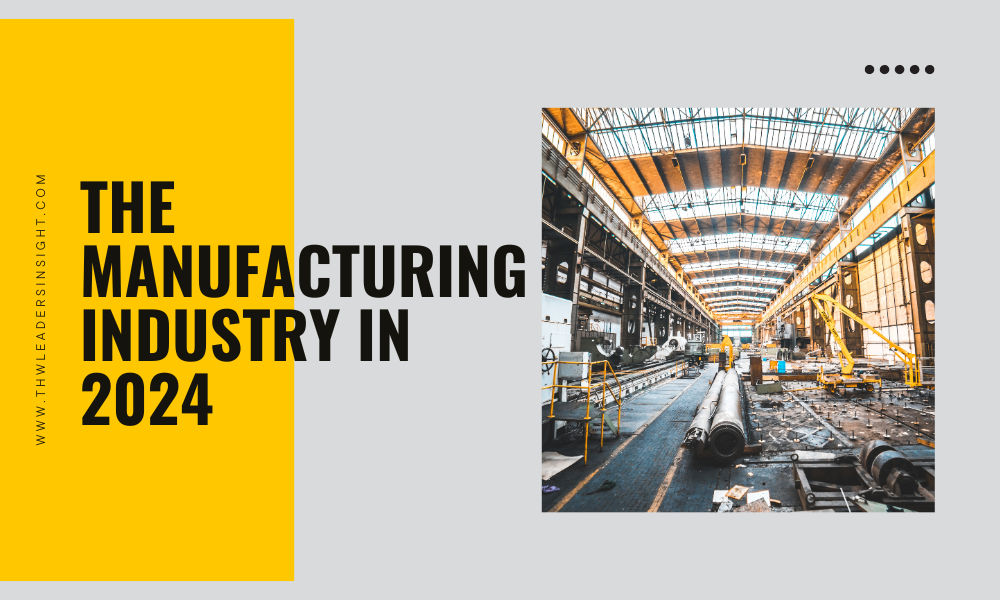The Manufacturing Industry : Innovations and Key Trends

Navigating Change in Manufacturing
As we step into 2024, the manufacturing industry is undergoing a significant transformation driven by technological advancements, sustainability initiatives, and shifting market demands. From the adoption of Industry 4.0 technologies to the increasing emphasis on sustainable practices, manufacturers are adapting to remain competitive in a rapidly changing landscape. This article explores the key trends shaping the manufacturing industry in 2024.
Industry 4.0: Embracing Smart Manufacturing
Industry 4.0 is at the forefront of manufacturing in 2024, enabling companies to leverage advanced technologies such as the Internet of Things (IoT), artificial intelligence (AI), and big data analytics. According to McKinsey, smart manufacturing can increase productivity by up to 20%. Manufacturers are implementing IoT sensors and AI algorithms to optimize production processes, reduce downtime, and improve quality control. Platforms like Siemens and GE Digital are leading the charge in providing innovative solutions that enhance operational efficiency.
Sustainability: A Core Business Strategy
Sustainability is becoming a central focus for manufacturers in 2024, driven by consumer demand for environmentally friendly products and regulatory pressures. According to Deloitte, 75% of manufacturers are prioritizing sustainability initiatives. Companies are adopting circular economy principles, reducing waste, and utilizing renewable energy sources. For instance, Unilever is committed to achieving net-zero emissions by 2039, demonstrating the industry’s shift toward sustainable practices.
Automation and Robotics: Enhancing Efficiency
The use of automation and robotics is revolutionizing manufacturing processes in 2024. Companies are increasingly adopting robotic process automation (RPA) to streamline repetitive tasks, reduce labor costs, and improve accuracy. According to Boston Consulting Group, the use of robots in manufacturing could increase productivity by 30% by 2030. Manufacturers like FANUC and ABB are providing advanced robotic solutions that enhance flexibility and efficiency on the production floor.
Supply Chain Resilience: Adapting to Challenges
The COVID-19 pandemic exposed vulnerabilities in global supply chains, prompting manufacturers to prioritize resilience in 2024. According to Gartner, 87% of supply chain leaders plan to invest in supply chain resilience strategies. Manufacturers are diversifying suppliers, localizing production, and adopting digital supply chain management tools to enhance visibility and responsiveness. Companies like SAP and Oracle are offering solutions that enable manufacturers to optimize their supply chain operations.
Workforce Development: Upskilling for the Future
As manufacturing becomes increasingly technology-driven, workforce development is critical for success in 2024. According to The Manufacturing Institute, 2.1 million manufacturing jobs may go unfilled by 2030 due to skills gaps. Manufacturers are investing in training programs, partnerships with educational institutions, and apprenticeships to equip their workforce with the necessary skills. Companies like Honeywell are implementing training initiatives to help employees adapt to new technologies and processes.
Additive Manufacturing: Revolutionizing Production
Additive manufacturing, commonly known as 3D printing, is transforming production processes in 2024. This technology allows manufacturers to create complex parts and prototypes with greater speed and efficiency. According to Wohlers Associates, the global 3D printing market is projected to reach $70 billion by 2026. Companies like Stratasys and Materialise are leading the charge in providing 3D printing solutions that enable rapid prototyping and customized production.
